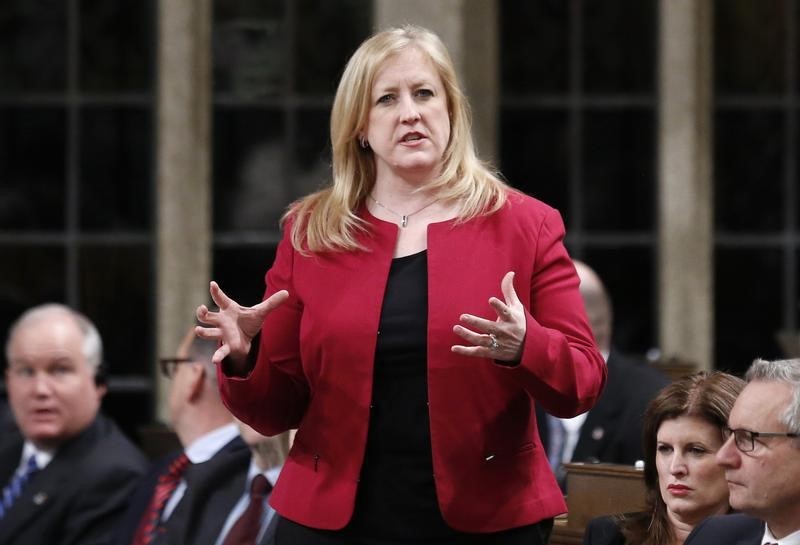By Patrick Rucker
WASHINGTON (Reuters) - Canada's transport minister will be in Washington on Friday for a joint announcement with her U.S. counterpart aimed at harmonizing safety regulations on shipping crude oil by rail, a politically sensitive issue on both sides of the border.
Lisa Raitt and U.S. Transportation Secretary Anthony Foxx are expected to demand that railroad companies equip cars with electronically controlled pneumatic brakes, a proposal the industry has aggressively resisted.
They are also expected to address the timetable for each country to remove older rail cars from service, as well as set a requirement for thicker hulls on new cars.
The safety of crude oil shipments by rail has become a battleground between regulators and industries with conflicting agendas. A series of fiery derailments - most notably the 2013 explosion of a runaway train that killed 47 people in Lac-Megantic, Quebec - has focused attention on the dangers accompanying the sharp growth in the number of trains carrying oil.
Since the Quebec accident, regulators in Canada and the United States have wrestled with how to improve safety without crippling an industry that has helped spur domestic oil production.
The rail and energy sectors have both resisted measures that they have said are too costly to implement for the small safety improvement they deliver.
Electronically controlled pneumatic brakes trigger all axles simultaneously rather than one at a time in current design and many safety advocates have said it is an important advance.
Large rail operators have lobbied against including an ECP brake mandate in the oil train rules, telling U.S. regulators in March that they "would not have significant safety benefits" and "would be extremely costly."
The oil industry is concerned that a demand for a 9/16th inch steel tanker frame will make the existing tanker car obsolete since upgrades would be too costly.
On Thursday, the leading voice for the refining industry said a five-year phase out of existing tank cars - a timetable endorsed by the U.S. National Transportation Safety Board - was unrealistic.
Of particular concern to regulators is crude oil originating from North Dakota's Bakken energy patch, where about 70 percent of the roughly 1.2 million barrels of oil produced daily moves by rail.
The Lac-Megantic shipment originated in North Dakota and officials have warned that crude from the region is uncommonly explosive, though no federal controls on volatility are expected in Friday's plan.
Tank car manufacturers Greenbrier Companies Inc (GBX.UL), Trinity Rail Leasing [TRNXRD.UL] and American Railcar Industries Inc are among the companies that could be impacted.
